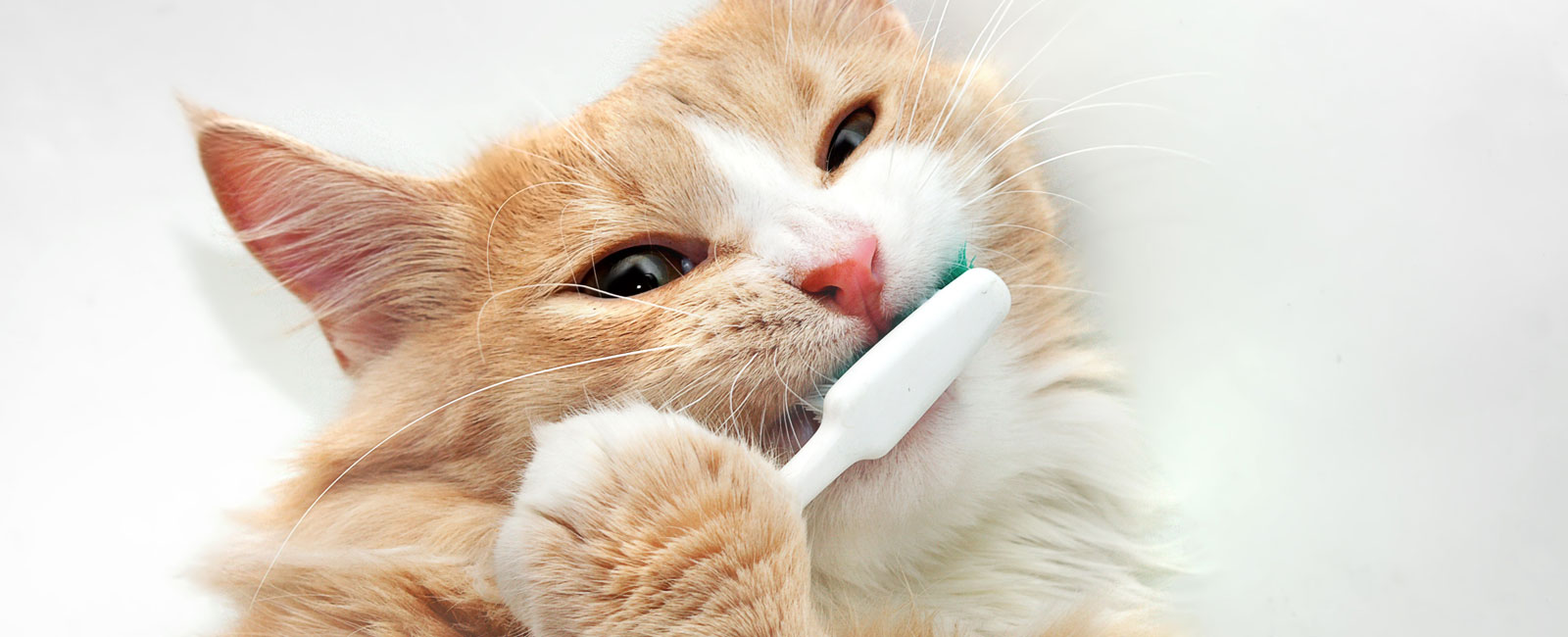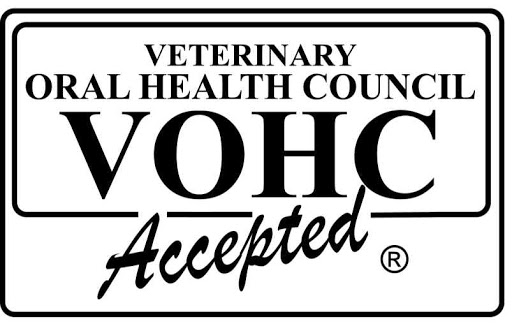
Pet Dental Care
During every regular wellness exam with Signature Veterinary Services, our veterinarian will evaluate your pet’s teeth and gums. Depending on the estimated degree of dental disease, we might recommend your pet receive more extensive therapy to safeguard his or her health and well-being.
Why Dental Care Is Essential for Dogs and Cats
It’s important to care for your pet’s teeth with regular brushing and by providing dental-friendly toys, treats, and diets. Often a dental cleaning is needed to return a pet’s teeth and gums to a healthy state.
When a pet’s oral care is left unattended, plaque and tartar accumulate on the surfaces of the teeth around the gums leading to periodontal disease. The bacteria in dental plaque irritate the gum tissue and with plaque build-up, infection in the bone surrounding the teeth can develop. Hard dental tartar (calculus), consisting of calcium salts from saliva, begins to form within a few days on an unbrushed tooth surface and creates a rough surface that promotes further plaque accumulation. As the tartar thickens and hardens, dental instruments are required for removal.
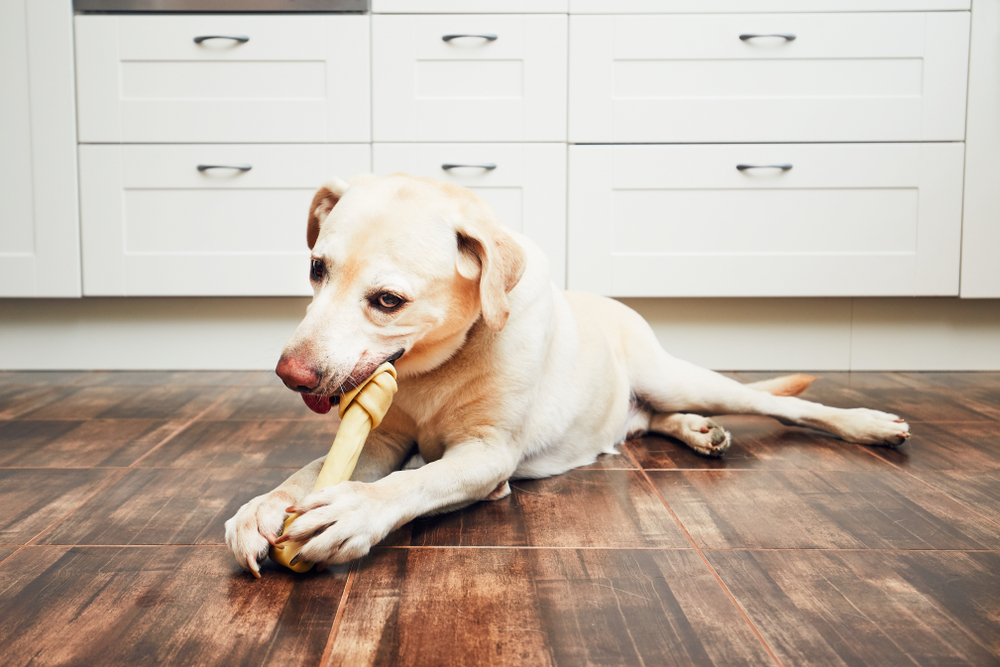

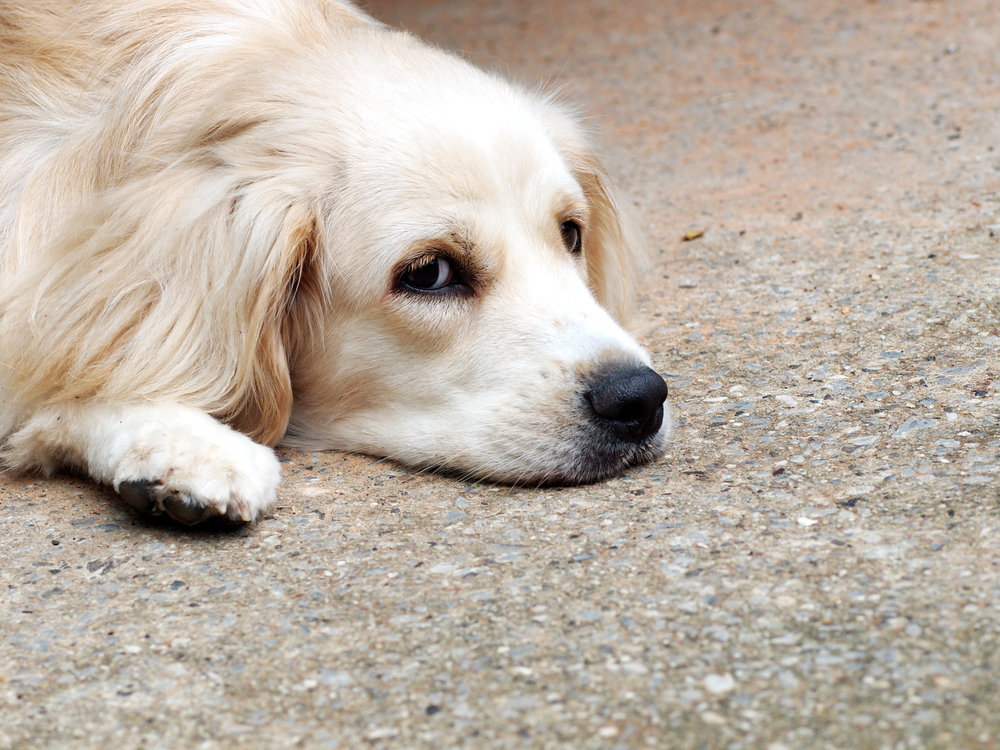

What Are the Consequences of Periodontal (Gum) Disease?
While bad breath is the most common effect described by owners, more severe consequences occur as well. Irritated gums can bleed and cause pain. Affected teeth may loosen and fall out and bacteria surrounding tooth roots can gain access to the bloodstream leading to kidney, heart, and liver damage.
Signs Your Pet Could Be Suffering from Periodontal Disease
- Persistent bad breath
- Difficulty eating and drinking
- Frequent dropping of food or toys
- Sudden disinterest in chew toys
- Appetite loss
- Red, swollen, or bleeding gums
- Swollen face
- Pawing at the mouth or face
- Broken, loose, or missing teeth
- Resistant to touch on the head or face (head shyness)
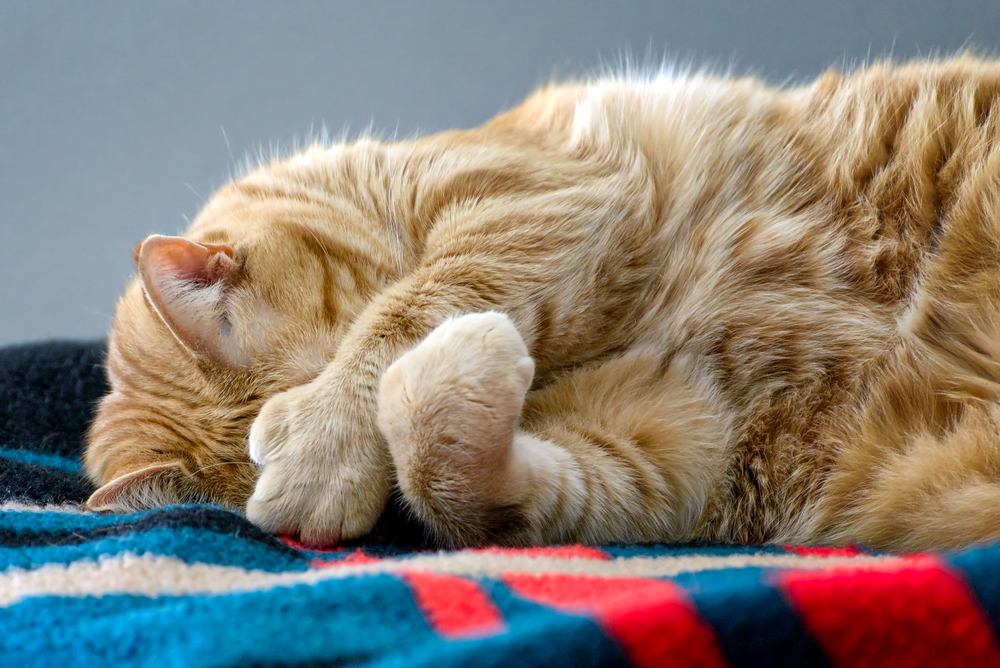

What to Expect During Your Pet's Dental Cleaning
At a home visit prior to a dental cleaning, our veterinarian will have examined your pet and also have run and interpreted blood work to ensure he/she appears sufficiently healthy to undergo anesthesia. In preparation for the dental procedure, we will have you fast your pet and we will perform a pre-anesthetic exam. After anesthetizing your pet in our mobile clinic, we will thoroughly evaluate the oral cavity and chart the teeth, noting pocket depths as well as any missing, mobile, fractured, and/or furcated teeth. Based on the findings, extractions and/or antibiotic treatments may be warranted. Following a complete oral examination, tartar is removed, using ultrasonic and hand scaling, teeth are polished to a smooth finish, and the oral cavity is rinsed.
Is Your Pet a Candidate for an Anesthesia-Free Dental Appointment?
Dental cleanings are best performed with pets under general anesthesia. We do, however, offer non-anesthetic dental appointments for pets who are estimated to have a mild degree of dental disease as well as the appropriate temperament. Additionally, a non-anesthetic dental may be preferred if your pet has a condition or disease that makes anesthesia risky. Often candidates have previously had an anesthetic cleaning.
We follow the same approach with charting and cleaning for both anesthetic and non-anesthetic dental procedures, however, we are more limited in awake patients than we are with anesthetized ones. For this reason, a non-anesthetic dental is not intended to be a substitute for an anesthetic one.
Our veterinary team will perform thorough physical examinations and appropriate laboratory testing to determine which dental procedure is most appropriate for your individual pet.
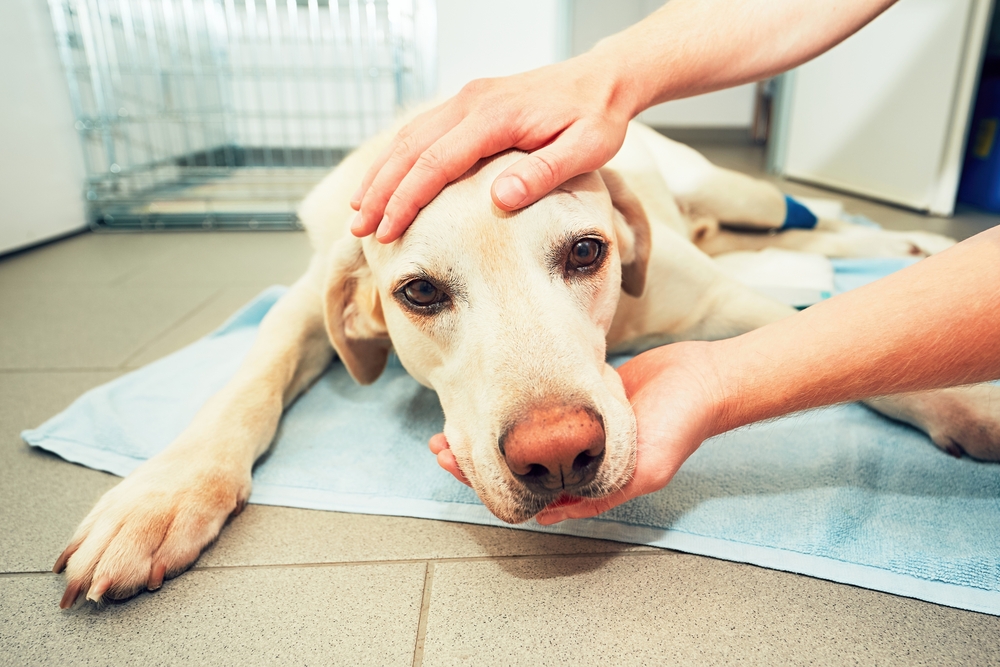

Pet Dental Appointments by House Call
For your convenience and your pet’s comfort, Signature Veterinary Services brings complete dental care to your doorstep with our mobile clinic. To learn more about our pet dental services, contact us today.
Looking for Dental Care Products?
Head over to the Veterinary Oral Health Council’s website for recommended dnetal care products.



